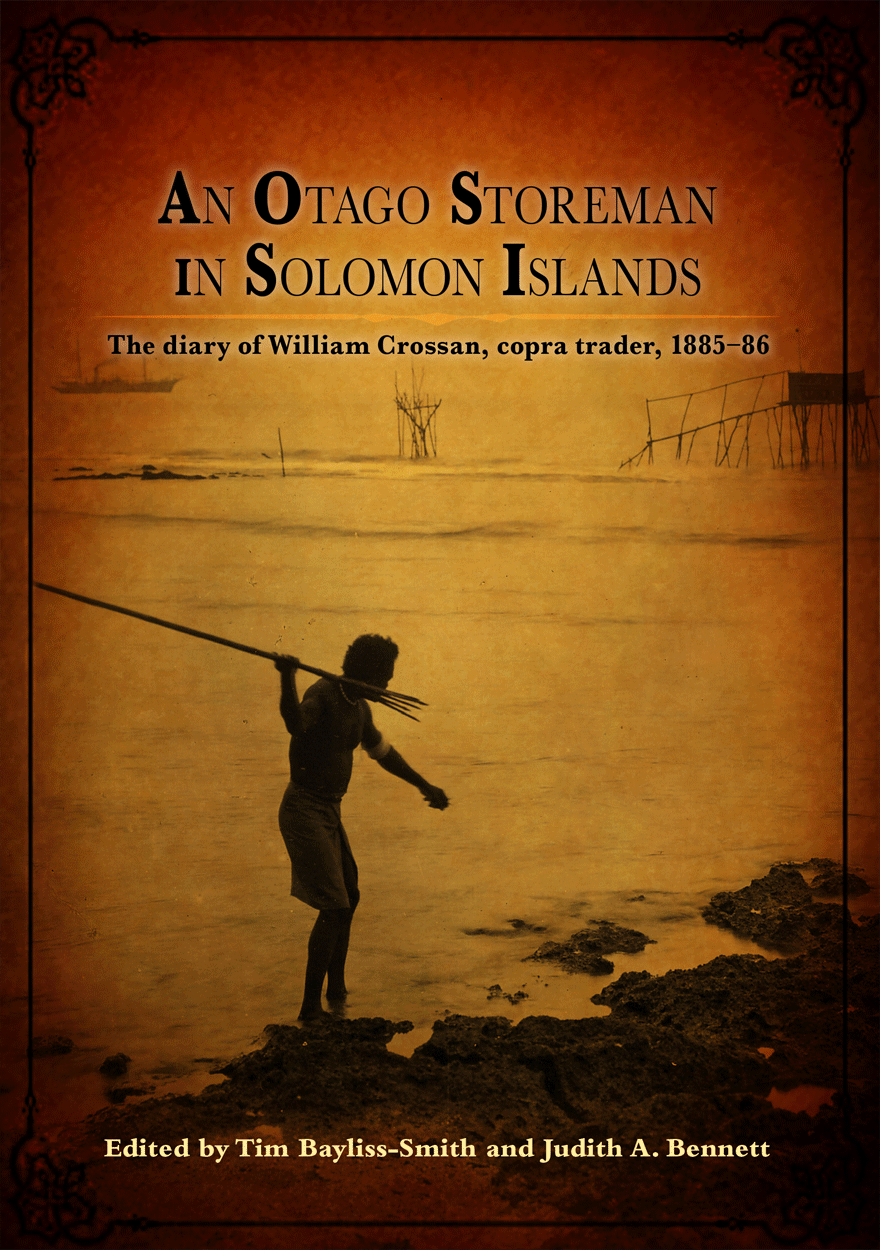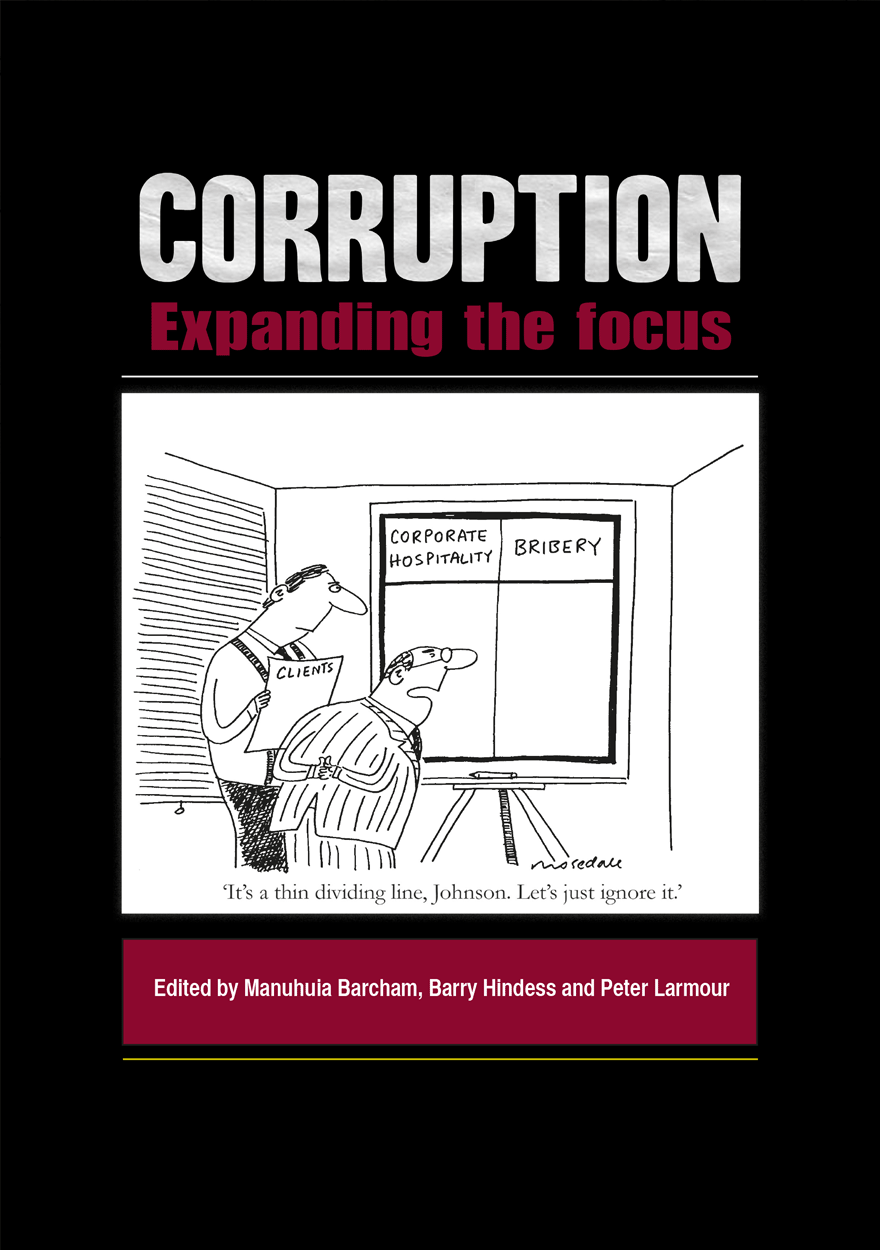Books
Browse or search ANU Press' range of books or find out more about the publications' authors and co-publishers. Download the book for free or buy a print-on-demand copy.
Displaying results 501 to 510 of 780.

Australia: Identity, Fear and Governance in the 21st Century »
Edited by: Juliet Pietsch, Haydn Aarons
Publication date: November 2012
The latter years of the first decade of the twenty-first century were characterised by an enormous amount of challenge and change to Australia and Australians. Australia’s part in these challenges and changes is borne of our domestic and global ties, our orientation towards ourselves and others, and an ever increasing awareness of the interdependency of our world. Challenges and changes such as terrorism, climate change, human rights, community breakdown, work and livelihood, and crime are not new but they take on new variations and impact on us in different ways in times such as these.
In this volume we consider these recent challenges and changes and how Australians themselves feel about them under three themes: identity, fear and governance. These themes suitably capture the concerns of Australians in times of such change. Identity is our sense of ourselves and how others see us. How is this affected by the increased presence of religious diversity, especially Islamic communities, and increased awareness of moral and political obligations towards Indigenous Australians? How is it affected by our curious but changing relationship with Asia? Fear is an emotional reaction to particular changes and challenges and produces particular responses from individuals, politicians, communities and nations alike; fear of crime, fear of terrorism and fear of change are all considered in this volume.

The Eye of the Crocodile »
Edited by: Lorraine Shannon
Authored by: Val Plumwood
Publication date: November 2012
Val Plumwood was an eminent environmental philosopher and activist who was prominent in the development of radical ecophilosophy from the early 1970s until her death in 2008. Her book Feminism and the Mastery of Nature (1992) has become a classic.
In 1985 she was attacked by a crocodile while kayaking alone in the Kakadu national park in the Northern Territory. She was death rolled three times before being released from the crocodile’s jaws. She crawled for hours through swamp with appalling injuries before being rescued. The experience made her well placed to write about cultural responses to death and predation.
The first section of The Eye of the Crocodile consists of chapters intended for a book on crocodiles that remained unfinished at the time of Val’s death. The remaining chapters are previously published papers brought together to form an overview of Val’s ideas on death, predation and nature.

Intersections »
History, Memory, Discipline
Authored by: Brij V. Lal
Publication date: November 2012
“A wonderfully rich, insightful and personally touching collection of essays by the Pacific region’s most prolific and engaging historian. Brij Lal writes eloquently and poetically about his professional and political journeys, and the many different people and worlds he has encountered on the way. Readers will be inspired by this collective account of a courageous life committed to the achievement of democratic freedom and social justice. What shines through these pages is Lal’s love of and commitment to Fiji, from which he has been painfully exiled.”
— David Hanlon, Professor of History & Former Director of the Center for Pacific Islands Studies, University of Hawaii at Manoa.
“Intersections is a compilation of Brij Lal’s essays where academic knowledge combines with life world experience. The voice behind these essays is always courageous and the writing itself indicative of a highly disciplined mind. Read this book with an open mind as Lal explores with sensitivity a country he loves intensely and as he reminisces on the vocation of a scholar. Savour the book’s historical insights, enter into its subaltern worlds, debate and challenge its findings, and in that moment of engagement shed a tear for a country which has lost its memory.”
— Vijay Mishra, Professor of English, Murdoch University
“Brij Lal is a master craftsman and all his skills are on display in this fascinating work which blends autobiography with social, political and historical analysis to produce a work of impeccable scholarship. Lal emerges as much more than a historian as he reflects on the discipline of History, the changing nature of academic life, the challenges of the Indian diaspora, indenture and his travels. He may be banned from his homeland, but somehow one gets the impression that his influence is alive in Fiji, his adopted Australia and across the world. True to his indentured roots, he is still digging, still writing, and still making history.”
— Goolam Vahed, Associate Professor of History, University of KwaZulu-Natal

Situating Women »
Gender Politics and Circumstance in Fiji
Authored by: Nicole George
Publication date: November 2012
Since the time of decolonisation in Fiji, women’s organisations have navigated a complex political terrain. While they have stayed true to the aim of advancing women’s status, their work has been buffeted by national political upheavals and changing global and regional directions in development policy-making. This book documents how women activists have understood and responded to these challenges. It is the first book to write women into Fiji’s postcolonial history, providing a detailed historical account of that country’s gender politics across four tumultuous decades. It is also the first to examine the ‘situated’ nature of gender advocacy in the Pacific Islands more broadly. It does this by analysing trends in activity, from women’s radical and provocative activism of the 1960s to a more self-evaluative and reflexive mood of engagement in later decades, showing how interplaying global and local factors can shape women’s understandings of gender justice and their pursuit of that goal.

Taking the High Ground »
The archaeology of Rapa, a fortified island in remote East Polynesia
Edited by: Atholl Anderson, Douglas J. Kennett
Publication date: November 2012
This volume brings the remote and little known island of Rapa firmly to the forefront of Polynesian archaeology. Thirteen authors contribute 14 chapters, covering not only the basic archaeology of coastal sites, rock shelters, and fortifications, but faunal remains, agricultural development, and marine exploitation. The results, presented within a chronology framed by Bayesian analysis, are set against a background of ethnohistory and ethnology. Highly unusual in tropical Polynesian archaeology are descriptions of artefacts of perishable material. Taking the High Ground provides important insights into how a group of Polynesian settlers adapted to an isolated and in some ways restrictive environment.

Survey Analysis for Indigenous Policy in Australia »
Social Science Perspectives
Edited by: Boyd Hunter, Nicholas Biddle
Publication date: November 2012
Indigenous policy is a complex domain motivated by a range of social, cultural, political and economic issues. The Council of Australian Governments ‘closing the gaps’ agenda for addressing Indigenous disadvantage in Australia now includes six targets with well defined and measurable outcomes for policy action. In this context there is a continuing and pressing need for robust debate to understand how meaningful improvement in Indigenous outcomes might be achieved.
This monograph presents the peer-reviewed proceedings of the 2011 CAEPR/ABS conference on ‘Social Science Perspectives on the 2008 National and Aboriginal Torres Strait Islander Social Survey’. It is the fourth CAEPR monograph since 1992 to reflect on national surveys of Indigenous Australians. The conference covered topics including child development, crime and justice, culture, wellbeing, the customary economy, demography, education, employment, fertility, health, housing, income and financial stress, mobility, poverty, social exclusion, and substance abuse. The papers summarise the strengths and limitations of the 2008 NATSISS, discuss the types of policy-relevant questions it can inform, and consider future survey design.
A social survey such as the NATSISS can ultimately never tell those responsible for developing public policy what to do, but it can provide useful information to inform policy decisions. This volume will be useful for researchers and policy makers, and relevant to the wider national debate and, in particular, Indigenous communities and organisations.

Following the sun »
The pioneering years of solar energy research at The Australian National University 1970—2005
Authored by: Robin Tennant-Wood
Publication date: October 2012
In 1970 a small group of physicists at The Australian National University decided to veer away from the accepted and expected directions in energy research and pursued the emerging discipline of solar energy. Over the next decade ANU joined a small cluster of research institutions, including the CSIRO, UNSW and the University of Sydney, to emerge as a world leader in solar energy technology. This book traces the history of solar energy research at ANU over 35 years from its origin, its sometimes controversial early stages, through its flagship projects to its current status as one of the world’s best known solar energy research establishments. It is as much a story of the future as it is a history: Following the sun is the story of how an idea to pursue what was in 1970 a new and unpopular research path has come to underpin sustainable development in the 21st Century.

Information Systems Foundations: Theory Building in Information Systems »
Edited by: Dennis N. Hart, Shirley Gregor
Publication date: October 2012
This volume presents the papers from the fifth biennial Information Systems Foundations Workshop, held at The Australian National University in Canberra from 30 September to 1 October 2010. The focus of the workshop was, as for the others in the series, the foundations of information systems as an academic discipline. The emphasis in the 2010 workshop was on theory building in information systems, which is a non-trivial and difficult issue because the field deals with such a wide range of phenomena, from the highly technological in nature to the distinctly human and organisational in focus. The theory building problem stems from the fact that the sciences that underlie and deal with technologically-oriented fields generally result in theories that fit within the ‘covering law’ model—that is, are assumed and believed to have universal applicability and explanatory and predictive power—whereas, by contrast, theories in the human sciences are generally much more conditional, contextual, tentative and open to exceptions. Successfully marrying the two is, not surprisingly, a challenge that the chapters in this volume explore.

An Otago Storeman in Solomon Islands »
The diary of William Crossan, copra trader, 1885–86
Edited by: Tim Bayliss-Smith, Judith A. Bennett
Publication date: October 2012
An Otago Storeman in Solomon Islands reaches from inland South Island of New Zealand across to the Solomon Islands during the 1880s. William Crossan’s Otago experience as a versatile storeman with a solid work ethic helped him survive on the Melanesian frontier where he encountered conflicting clans, cannibalism, cheating traders, and co-operative entrepreneurial big men. His diary provides many glimpses into Makiran society as it encountered new ideas, new employment, and western technology. It is a welcome addition to the sparse record of these cryptic copra traders seeking fortunes on the cusp of indigenous tradition and incoming colonialism.

Corruption »
Expanding the Focus
Edited by: Manuhuia Barcham, Barry Hindess, Peter Larmour
Publication date: September 2012
Recent years have seen an unprecedented rise in interest in the topic of corruption, resulting in a rising demand for suitable teaching materials. This edited collection brings together two different approaches to the study of corruption — the first represented by a large, practically-oriented literature devoted to identifying the causes of corruption, assessing its incidence and working out how to bring it under control; the second by a smaller collection of critical literature in political theory and intellectual history that addresses conceptual and historical issues concerned with how corruption should be, and how it has been, understood — and uses the second to reflect on the first.
This collection will be of interest to post-graduate students in political science, law, sociology, public policy and development studies, to senior public servants, and to professionals working in multilateral agencies, NGOs and the media.



